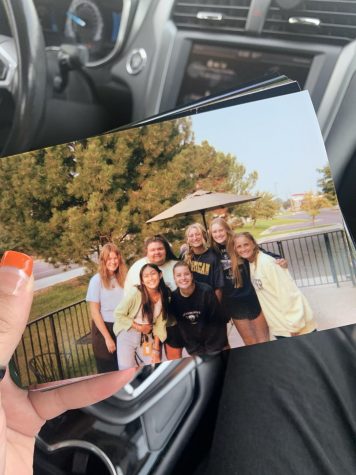Throwback to New Bingham (1976): Politics
Back when Bingham was a new school, there was another presidential election happening. Unlike our current election, the 1976 presidential election was notably short on the insults that seem to characterize politics nowadays, but it wasn’t short on excitement. Students from Bingham were allowed to vote at the age of eighteen according to the recently passed 26th amendment, and many of them took this opportunity.
The election really started with the Watergate scandal in Washington, D.C. Once it became clear that CREEP (Committee to Re-elect the President) had broken into the Democratic Party headquarters in the Watergate hotel in order to steal information from his political opponents on the orders of President Nixon, a formal investigation began into the affairs of the president. The president, who was notoriously paranoid, kept all of his conversations recorded on tape and the prosecutors demanded these tapes to continue their investigations. According the Supreme Court case United States v. Nixon, the president claimed ‘executive privilege’ and refused to hand over the tapes. After the Supreme Court ruled that Nixon had no right to withhold the tapes, he resigned the presidency and passed the reins to his vice president, Gerald Ford.
Gerald Ford becoming president created a certain amount of controversy because he was not elected by the people. Nixon’s original vice president, Spiro Agnew, had resigned due to a corruption scandal when he was Governor of Maryland and so Ford was selected as vice president. Ford’s first act as president was to pardon Nixon for all crimes committed while Nixon was the president, making Ford even less popular.
Fast forward two years, to the nomination phase. Ford’s only real challenger to the nomination was Ronald Reagan, the former governor of California. He won the nomination at the party convention and chose Bob Dole to be his running mate.
On the Democratic side, the nomination was much more difficult to obtain. Five different candidates (Morris Udall of Arizona, Henry Jackson of Washington, George Wallace of Alabama, Jerry Brown of California, and Jimmy Carter of Georgia) fought over the nomination for months. Eventually, most of the candidates dropped out as Jimmy Carter, a political outsider from Georgia, won a surprising amount of primary elections. Very much like today’s Republicans, the Democratic Party mobilized against a political outsider with the ‘ABC’ or ‘Anybody But Carter’ movement, but it was too late. Jimmy Carter went on to win the Democratic nomination.
Now in the general election, the two candidates faced down. According to the election website 270toWin, Gerald Ford ran as a tested leader who had already served part of a term in the White House and Jimmy Carter ran as a Washington outsider who would end corruption in the national government.
According to the Encyclopedia Britannica, both candidates made some memorable mistakes. In an interview with Playboy magazine, Jimmy Carter admitted to having ‘lust in his heart’ for women other than his wife. But Gerald Ford matched him when he said that Eastern Europe, which was currently under the control of Soviet communists, was not under the influence of communism and never would be under his administration.
After several televised debates, November rolled around. According to most polls, Ford and Carter were even nationally. The election was the closest since 1916, but Jimmy Carter won both the popular vote (50.1 percent to 48 percent) and the electoral vote. Carter won the Deep South and parts of the Northeast, giving him 297 electoral votes to Ford’s





